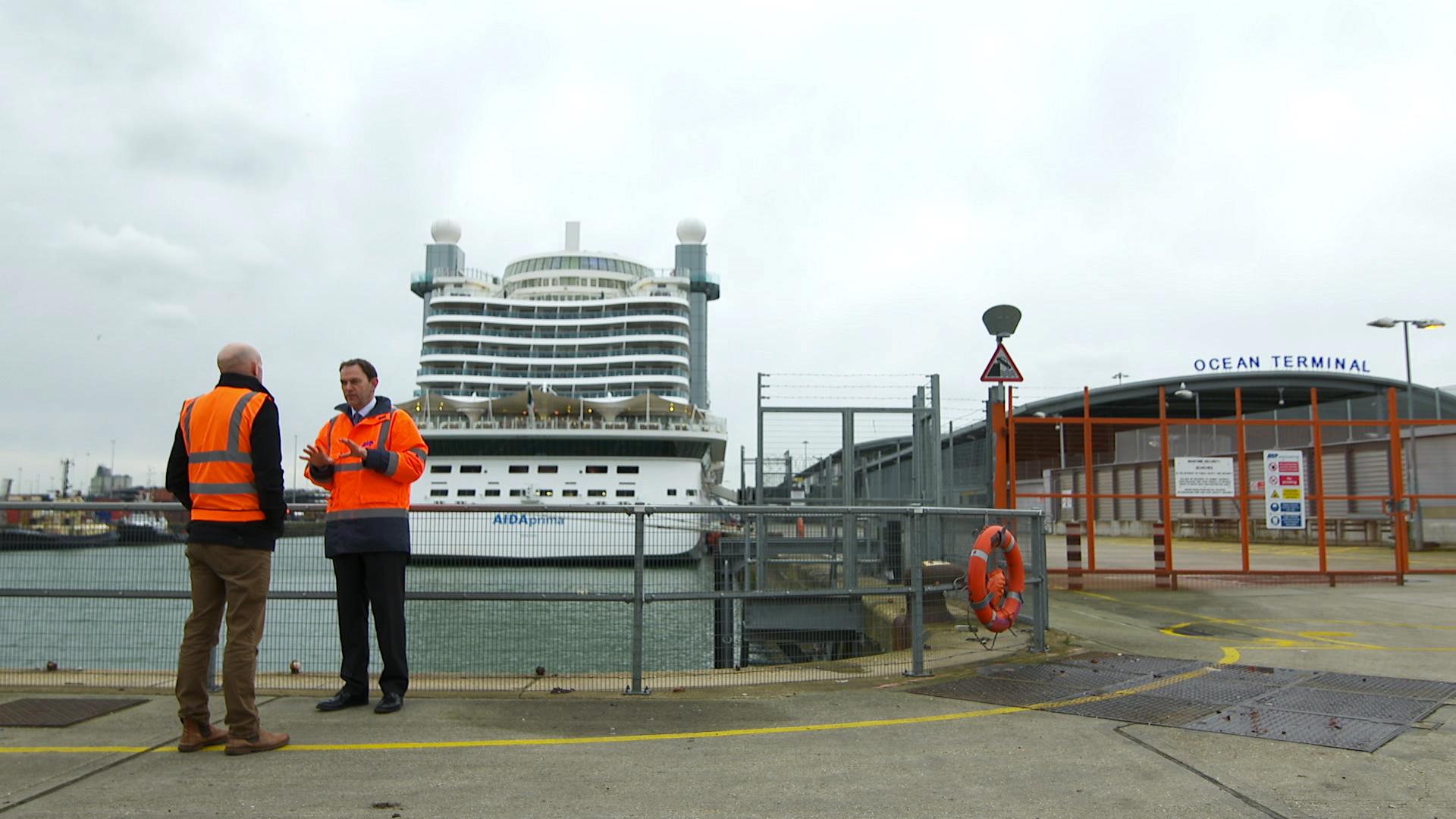Southampton Port 'on course' for cruise ship shore power first
- Published
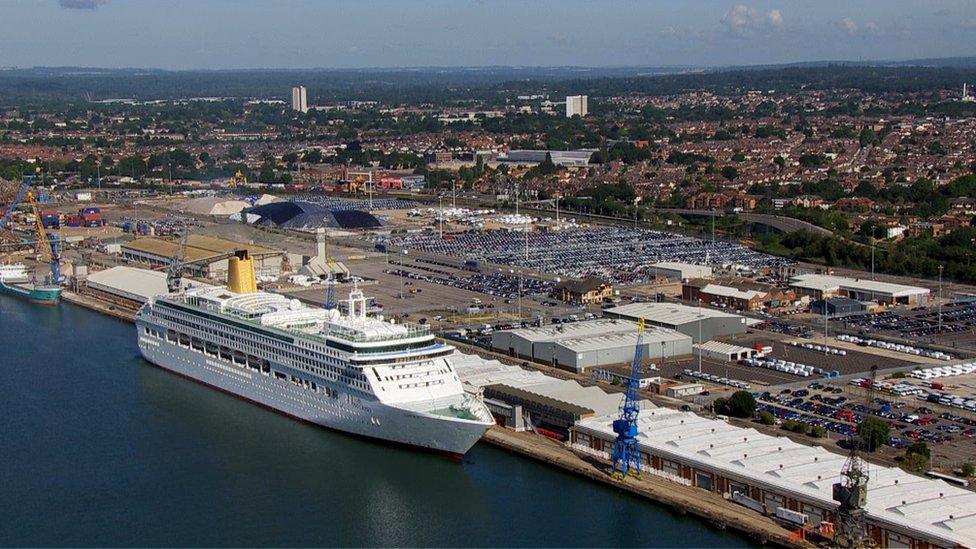
The Port of Southampton has pledged to introduce shore power in 2020
A port has said it remains "on course" to be the first in the UK to introduce shore power for cruise ships.
Associated British Ports (ABP) said it would meet a previous pledge to install the technology in Southampton in 2020.
However the firm said it had not yet resolved issues over funding and a potential drain on the National Grid.
On a recent visit to the port, prime minister Boris Johnson said he was "very interested" in shore power as a means of limiting pollution from ships.
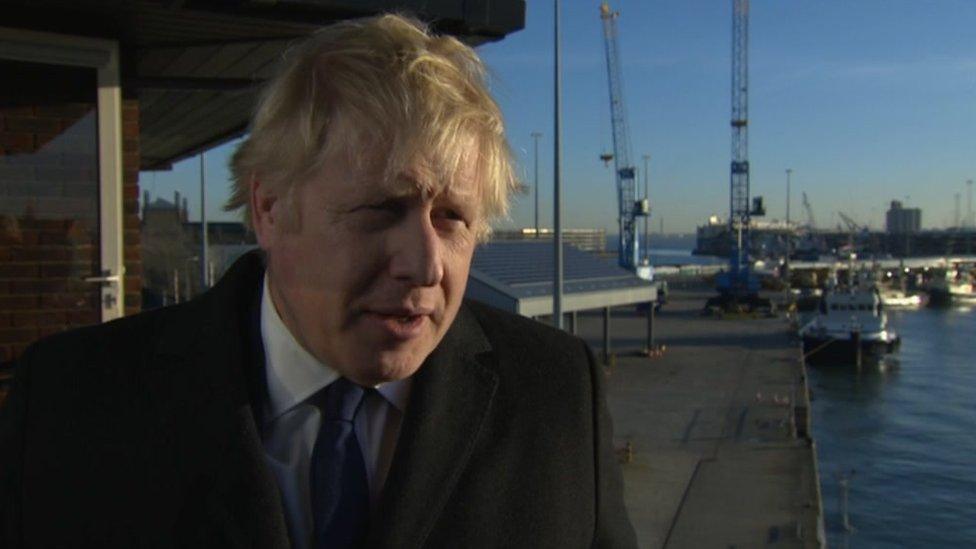
Boris Johnson said he was "very interested" in supporting the port to provide shore power
Shore power, otherwise known as "cold ironing", reduces the time vessels run their engines in port.
Shipping is forecast to emit between 2% and 6% of nitrogen dioxide emissions in Southampton, ABP's Port Air Quality Strategy said in 2018.
However a report to Southampton councillors, external in January 2019 said shore power "demonstrated no discernible benefit to nitrogen dioxide concentrations at EU relevant locations".
The report added that shore power could nevertheless deliver unspecified "public health benefits".
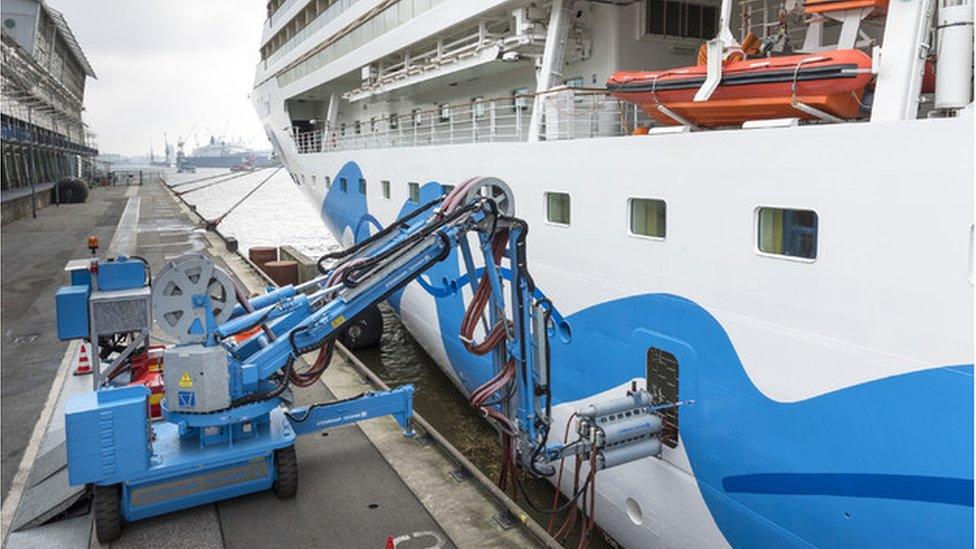
Shore power is already available for cruise ships in Hamburg and other ports around the world
The council applied in January 2019 for a government grant to fund a £7m shore power scheme.
However the bid was rejected because of concerns over insufficient benefits and speed of delivery, the authority said.
On a visit to Southampton on 2 December, the prime minister told reporters: "We need to reduce the diesel fuel emissions from ships.
"One thing you could do... which I'm very interested in doing... is support the port in providing the juice from the shore, plug them in."
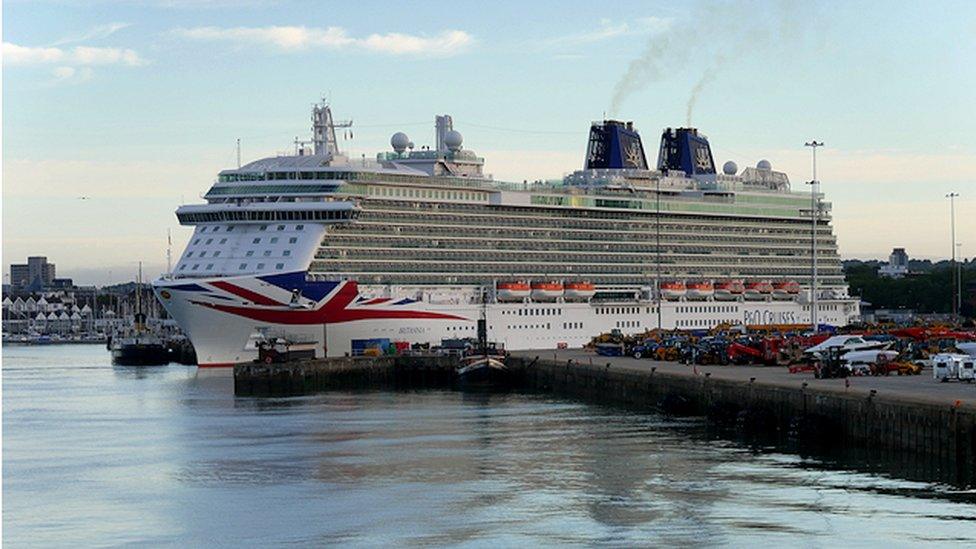
Shore power would reduce the amount of time that ships run their engines in port
ABP said its shore power pledge remained "on course" although issues remained over funding and the large amount of power needed for cruise vessels.
Port director Alastair Welch said: "What we don't want to do is to plug a ship in and brown out the city."
Cold ironing is already available for cruise ships in the United States, Canada and some European ports.
- Published22 March 2019
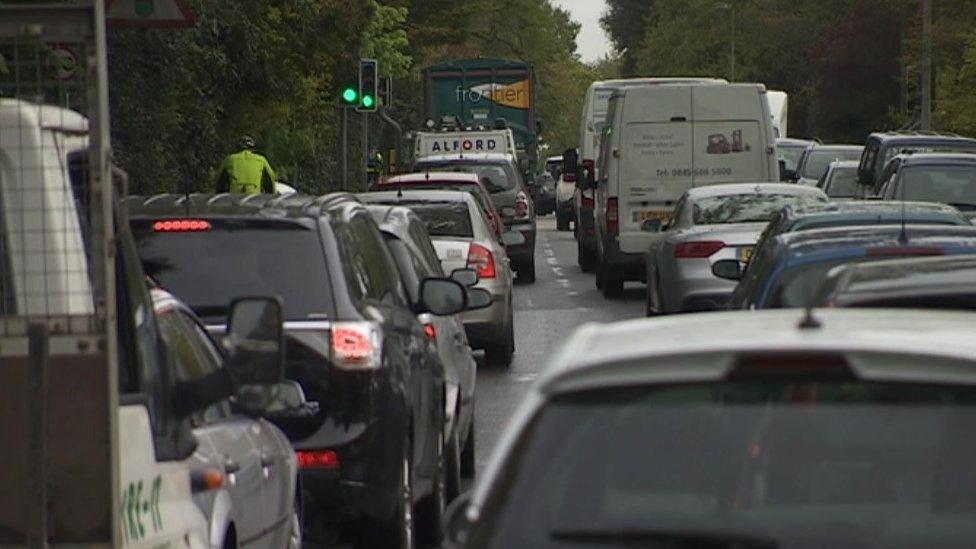
- Published22 January 2019

- Published6 March 2017
